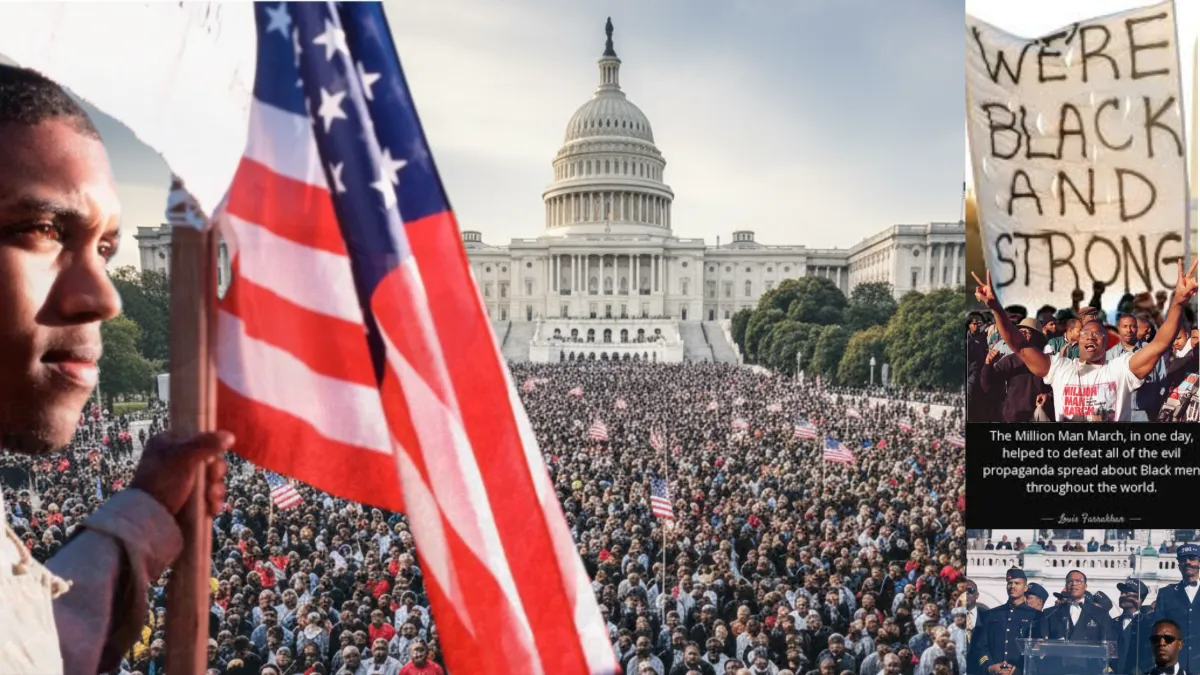
Atonement and the Million Man March
We celebrated the 30th anniversary of the Million Man March! The intervening years have brought much change, but for Black men, America has changed little. Here is my reflection.
On a bright and beautiful day in mid-October, I gathered with my brother, Ullysee, brother-in-law, Dennis, and close friend, Artie, on the National Mall, along with one million of our African American brothers. The date was October 16, 1995, and in the 220-year history of America, nothing like this had ever been done before. Black men had walked, drove, and caught buses, trains, and planes to gather in D.C. in a show of unity.
Skin tone, religious affiliation, and economic and educational status were laid aside for that moment in time for a movement with a greater purpose. Unity that was thought impossible by most Americans, Black and White, was realized, and without any violent incident on record. It was an event I mentally memorialized.
We stood in the shadows of monuments proclaiming liberty and justice for all. We were there in hopes of making that shallow proclamation a reality for all. We waited in anticipation as speaker after speaker mounted the large stage with a podium at its center. Rosa Parks, Dorothy Height, Cora Masters Barry, and Betty Shabazz shared the stage and remarks with Joseph Lowery, Cornel West, and Benjamin Chavis. The themes of responsibility, reconciliation, and atonement rang clear from each speaker, both those I have named and others who took the podium.
Minister Louis Farrakhan was the keynote speaker, and as he took the microphone in the midafternoon, you could hear a pin drop in that vast throng of men. Much of what he said had already been touched upon, but it did not matter; he had our full attention. I listened acutely as he addressed the issue of atonement.
I remember clearly, even 27 years later, his reference to the “A” tone and its musical significance. It was the symbolic high note of the event. As we left the National Mall that day, we stopped at the Old Country Buffet in Waldorf, Maryland, for dinner. When we told the cashier where we had just come from, she let all four of us eat for free! Hers was a demonstration of just how real the sense of unity and brotherhood was that day.
The events of that day would linger despite the efforts of many who tried to diminish it, but eventually, hope would fade, as did Farrakhan’s A tone high note. What I had hoped for that day was reconciliation and acceptance, both with my Black brothers and with the American people who feared and demeaned us. I believe others had that same hope.
The Million Man March made a loud and visible statement of our personhood and worth; we were not invisible, nor were we three-fifths of a man. It was a worthy effort, but it was just another march to nowhere on a bridge too far. The hope of that day remains unfulfilled for many of the men who shared the moment and movement with me.
As the sun set that evening, the light that shone so hopefully would dim, and the clarity it spread into dark corners so very briefly dimmed as well. The atonement, the acceptance, we had hoped for was as lifeless an idol as Lincoln’s monument and Jefferson’s constitution.
Stillborn dreams and lifeless gods are America’s true legacy. Marcus, Malcolm, and Martin are my witnesses. As solemn and hopeful as that day was, there is another Atonement Day with greater significance and better promises. That day was celebrated by the nation of Israel and foreshadows the final Day of Atonement.
We, Black men, America, and the world are witnessing the solemn approach of that day. I am preparing as I did thirty years ago. I won’t be disappointed this time around. When Christ parts the heaven, I pray you will be ready to greet Him!
Visit my blog at:www.hisglorypublishing.comfor further insight.
Interviews and Discussions:
To have the author participate in small group discussions, interviews, and speaking engagements, please email us at: [email protected]
